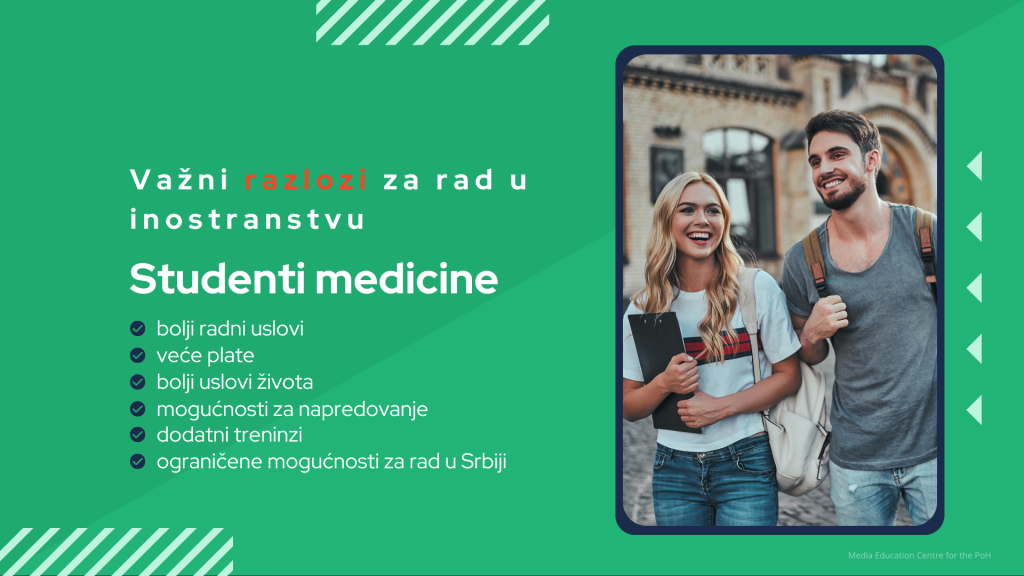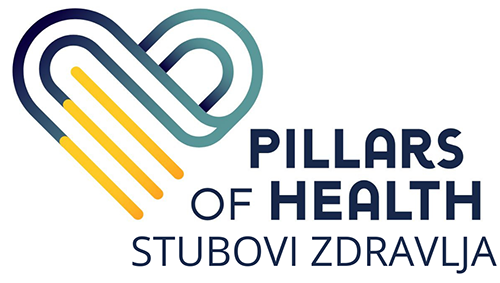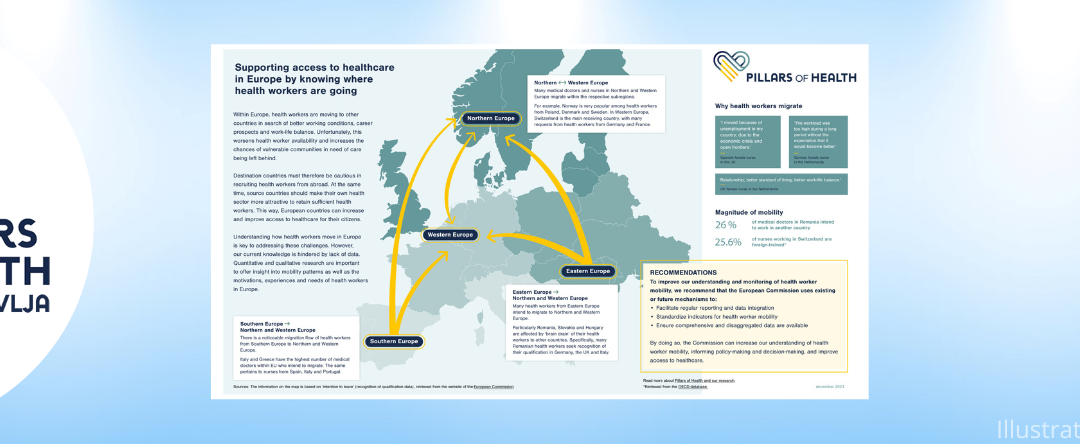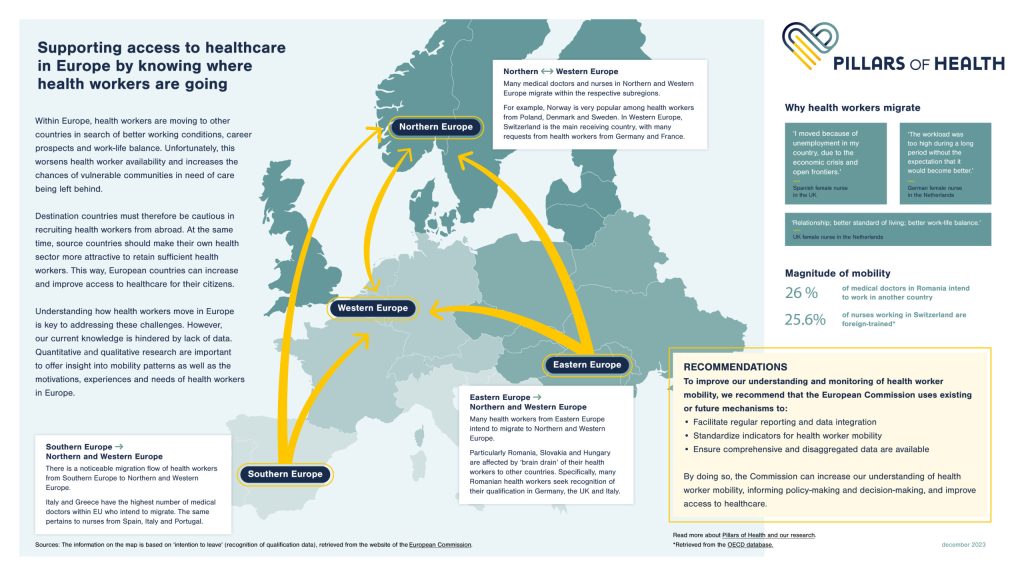Migracija u državu Evropske unije je relevantna opcija za srpske studente medicine. Razgovarali smo o migraciji sa mladom doktorkom, koja je tek završila medicinski fakultet, sa veoma visokom prosečnom ocenom (9,9/10). Iako nije prvenstveno zainteresovana za odlazak u inostranstvo, ova mogućnost će postati relevantnija u slučaju da ona ne nađe posao 6 meseci nakon dobijanja licence ili oko godinu i po nakon diplomiranja. Ona nema konkretan plan, ali već ima neke osnovne informacije o migraciji, iako je u inostranstvu bila samo na kratkom putovanju. Glavni razlog za odlazak iz zemlje bi bili finansijski razlozi.

Da bi se preselila u inostranstvo, bila bi spremna da nauči jezik, da joj se prizna diploma i da prođe dodatnu obuku. Bilo bi lakše odlučiti se o selidbi ako bi imala porodicu ili prijatelje koji su već u zemlji koju bi izabrala. Glavna prepreka bi bilo napuštanje porodice i prijatelja, a očekivala bi platu koja je 3-5 puta veća nego što je u Srbiji.
Najvažnijih 5 razloga zbog kojih mladi lekari odlaze u inostranstvo su niske plate, male mogućnosti za dodatni posao i honorare, ograničene mogućnosti za zapošljavanje, korupcija i loše upravljanje zdravstvenom radnom snagom. Pored malih plata, opterećenje na poslu posla je mnogo veće nego u inostranstvu.

Negativni efekti migracija su nedostatak zdravstvenih radnika, mali broj zdravstvenih radnika u ruralnim područjima, posebno u opštoj/porodičnoj medicini, mala dostupnost medicinske sestre, niži kvalitet zdravstvene zaštite uopšte, veće opterećenje poslom, veća potreba za prekovremenim radom (koji je nisko plaćen), agencije za zapošljavanje su povećale rad sa zdravstvenim radnicima, ali plate nisu pratile povećanje opterećenja na poslu. Nije videla pozitivan efekat u iseljavanju zdravstvenih radnika.
Pozitivno strana rešenja za nju bi bila adekvatna plata s obzirom na opterećenje na poslu, mogućnost lakšeg povratka u Srbiju, bolji uslovi za napredovanje u karijeri. Ona takođe smatra da bi strategija koja se tiče razvoja zdravstvene radne snage, povećanje zapošljavanja u javnom zdravstvu i bolje upravljanje zdravstvenom radnom snagom rešila problem.
Nije prepoznala probleme u vezi sa rodnim pitanjima u vezi sa migracijom zdravstvene radne snage.










